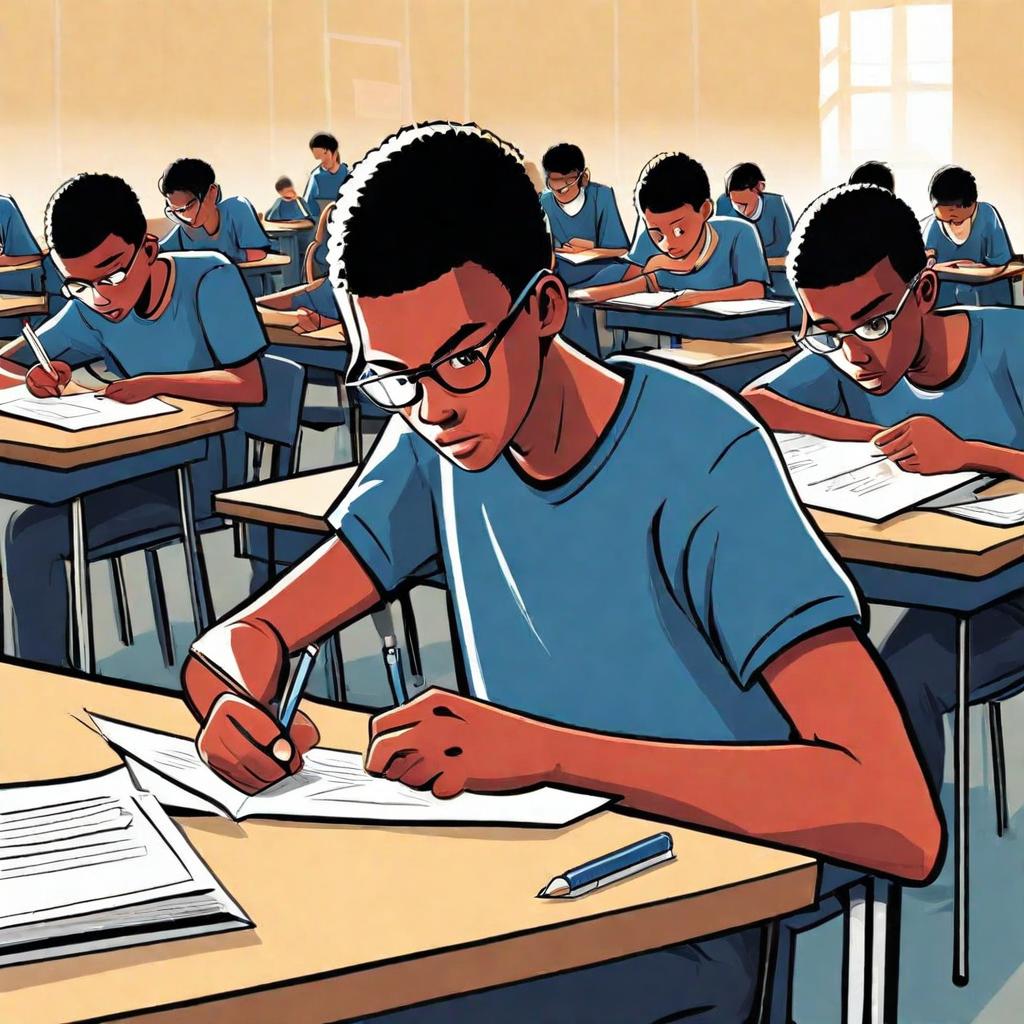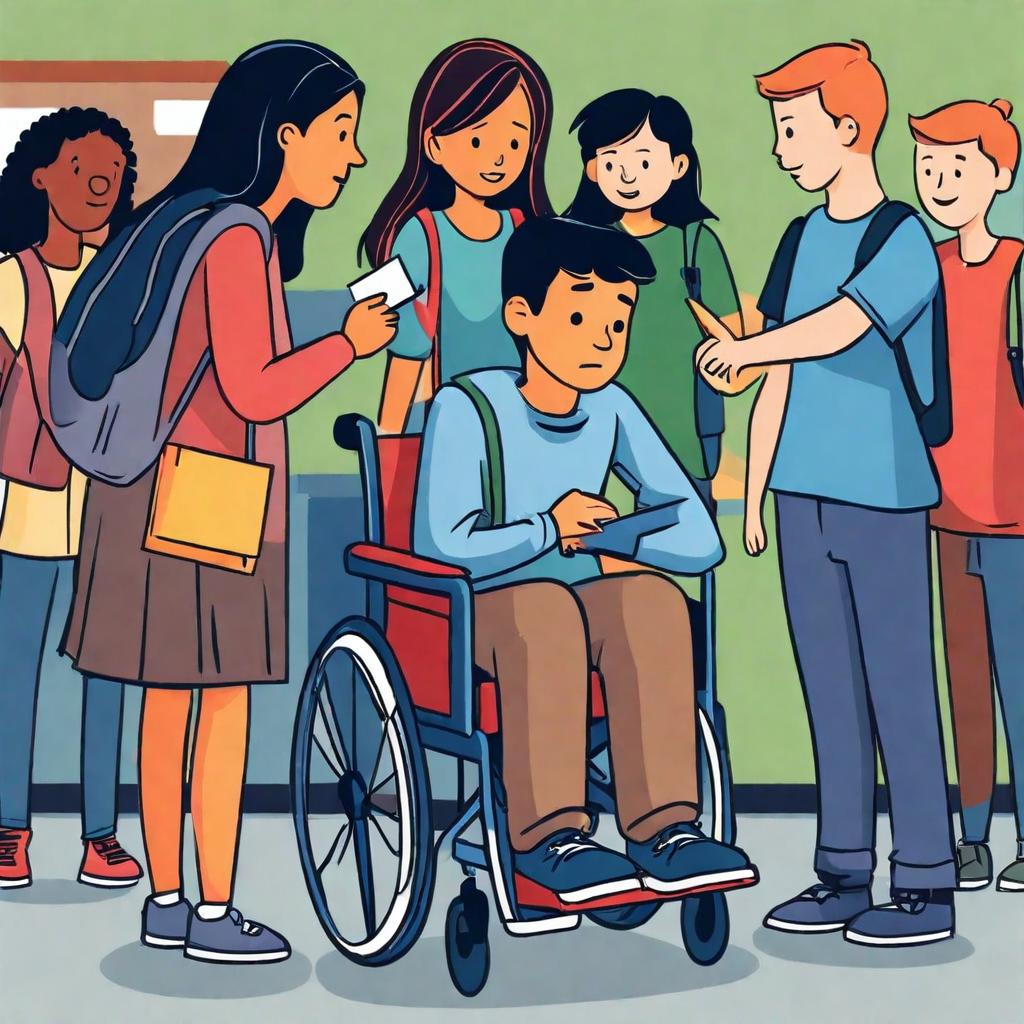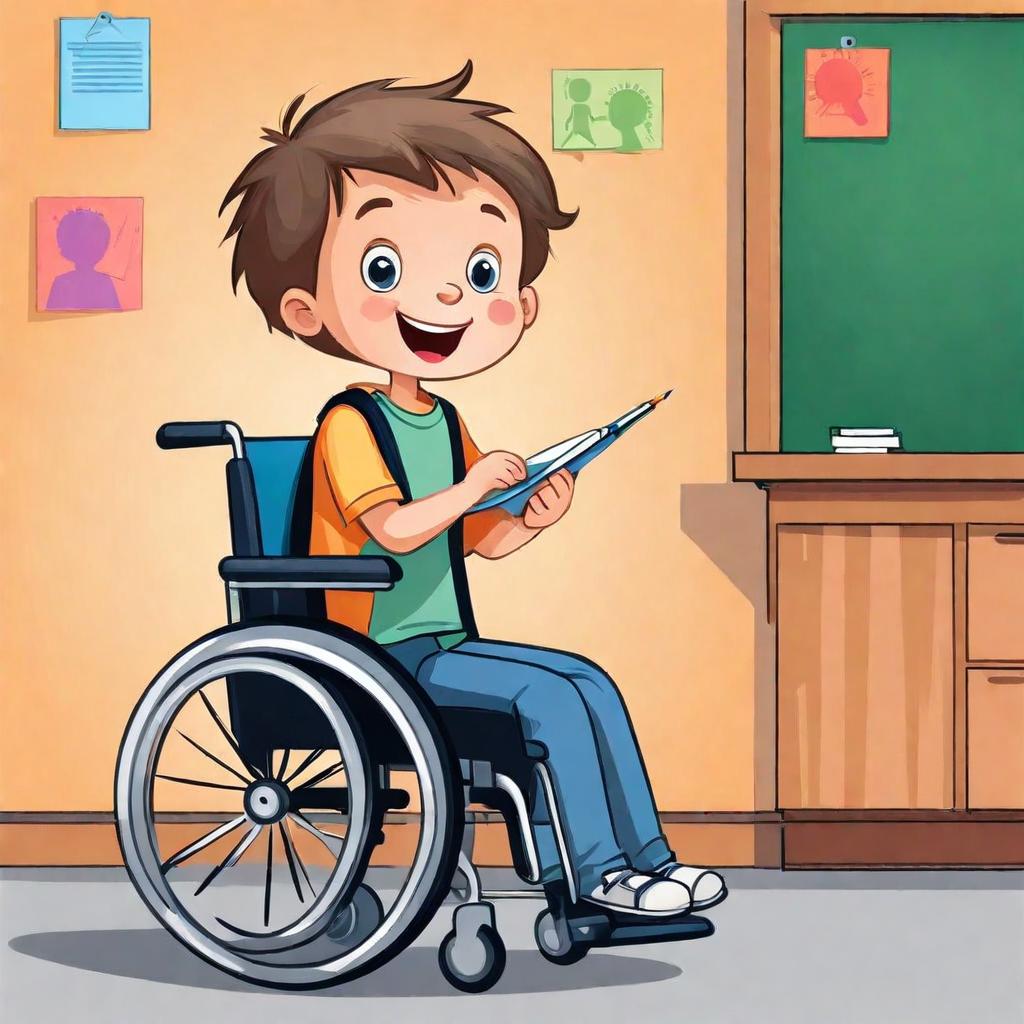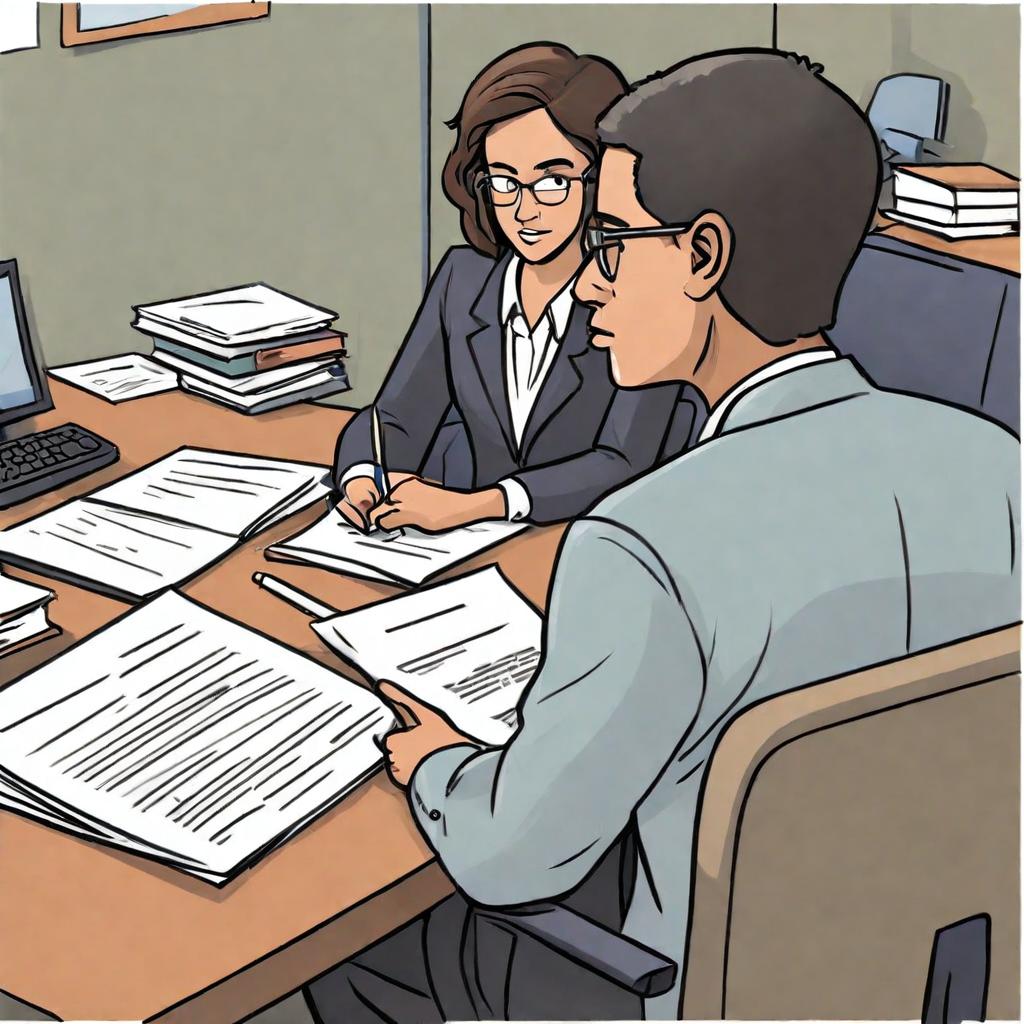I .Introduction : How Education Lawyer Services Can Help Students
A. Understanding the Role of Education Lawyers
Education lawyers specialize in the field of education law, How Education Lawyer Services Can Help Students, a branch that deals with issues pertaining to schools, students, and educational institutions. They provide legal advice and representation on matters such as student rights, school policies, disciplinary actions, special education needs, and compliance with educational regulations. Their role is crucial in ensuring that the educational environment is fair, equitable, and conducive to learning for all students.
B. Importance of Seeking Legal Support for Academic Challenges
Seeking legal support for academic challenges is vital for several reasons. Education lawyers can help students and their families navigate complex educational laws and policies, protect students’ rights, and advocate for necessary accommodations and services. Whether dealing with bullying, discrimination, or special education disputes, having a knowledgeable legal advocate can make a significant difference in resolving issues effectively and ensuring that students receive the education and support they are entitled to.
C. Overview of Common Academic Issues Faced by Students
Students encounter a variety of academic issues that may require legal intervention. These include:
- Special Education Needs: Disputes over Individualized Education Programs (IEPs), 504 plans, and the provision of appropriate services for students with disabilities.
- Disciplinary Actions: Issues related to suspensions, expulsions, and other disciplinary measures that may affect a student’s educational trajectory.
- Bullying and Harassment: Cases involving physical, emotional, or cyberbullying, which can create a hostile learning environment.
- Discrimination: Challenges related to unequal treatment based on race, gender, religion, sexual orientation, or other protected characteristics.
- Academic Integrity: Allegations of cheating, plagiarism, or other violations of academic honesty policies.
- Privacy and Confidentiality: Concerns regarding the protection of student records and personal information under laws such as FERPA (Family Educational Rights and Privacy Act).
II. Academic Misconduct

Types of Academic Misconduct
Academic misconduct comes in various forms, each with its own set of challenges and implications. Let’s delve into the most common types:
Cheating
Cheating is perhaps the most well-known form of academic misconduct. It involves using unauthorized materials, information, or devices during an academic exercise. For instance, students might sneak notes into an exam, use hidden earpieces, or even employ sophisticated technology to gain an unfair advantage. The digital age has only increased the avenues for cheating, making it a persistent problem in educational institutions.
Plagiarism
Plagiarism occurs when someone uses another person’s work or ideas without proper acknowledgment. This can range from copying and pasting text from the internet to submitting someone else’s work as one’s own. There are various forms of plagiarism, including direct plagiarism, self-plagiarism, mosaic plagiarism, and accidental plagiarism. Each type involves different levels of intent and deceit but is equally harmful to academic integrity.
Fabrication
Fabrication involves falsifying data, information, or citations in any academic exercise. This could mean making up research data, altering results, or inventing sources for a paper. Fabrication is particularly serious in research-based fields, where the integrity of data is paramount.
Facilitation of Academic Dishonesty
Facilitation of academic dishonesty occurs when a student helps another student commit an act of academic misconduct. This might include sharing test answers, writing papers for someone else, or even hacking into school systems to alter grades. It’s a collaborative form of dishonesty that complicates the enforcement of academic integrity policies.
Unauthorized Collaboration
While collaboration is often encouraged in academic settings, unauthorized collaboration crosses the line when students work together on assignments meant to be completed individually. This could mean sharing answers on a take-home test or working together on a project without permission from the instructor.
Misrepresentation
Misrepresentation involves providing false information in an academic context. This can include lying on college applications, misrepresenting academic achievements, or falsifying medical excuses to get out of exams or assignments. Such actions can have serious consequences for the individual’s academic and professional future.
Consequences of Academic Misconduct
The consequences of academic misconduct can be severe, affecting various aspects of a student’s life.
Immediate Academic Consequences
One of the most immediate consequences of academic misconduct is a failing grade on the assignment or exam in question. In more severe cases, students may be placed on academic probation, which can jeopardize their standing in their academic program and limit their opportunities for scholarships and other benefits.
Long-term Academic Consequences
More severe or repeated instances of academic misconduct can lead to suspension or expulsion from the institution. This not only disrupts the student’s educational journey but can also leave a permanent mark on their academic record, making it difficult to gain admission to other institutions in the future.
Professional and Personal Consequences
Academic misconduct can have long-lasting effects on a student’s career and personal life. A record of dishonesty can hinder job prospects, as employers often value integrity and trustworthiness. Additionally, the stigma of being caught can damage a student’s personal reputation among peers, family, and future professional networks.
How Education Lawyers Can Help in Cases of Academic Misconduct
Facing allegations of academic misconduct can be daunting, but education lawyers can provide crucial support and guidance.
Understanding Your Rights
Students accused of academic misconduct have specific legal rights, which vary by institution and jurisdiction. Education lawyers can help students understand these rights and ensure they are protected throughout the process. This includes the right to a fair hearing and the right to appeal decisions.
Building a Defense
Education lawyers can assist in building a robust defense against allegations of academic misconduct. They can gather evidence, interview witnesses, and develop strategies to refute the claims. This might involve demonstrating that the misconduct was unintentional or that the evidence against the student is insufficient.
Navigating Institutional Processes
Universities and colleges have their own procedures for handling academic misconduct cases, which can be complex and intimidating. Education lawyers are familiar with these processes and can guide students through hearings, appeals, and other procedural steps, ensuring that they receive fair treatment.
Mitigating Consequences
Even if a student is found guilty of academic misconduct, education lawyers can help mitigate the consequences. They can negotiate on behalf of the student to reduce penalties, such as converting a suspension into probation or arranging for remedial courses instead of expulsion.
Advocacy and Support
Beyond legal representation, education lawyers provide emotional and professional support. They advocate for the student’s interests and well-being, helping them navigate the stress and uncertainty that come with academic misconduct allegations.
III. Discrimination and Harassment

Recognizing Discriminatory Practices in Educational Institutions
To effectively combat discrimination and harassment, it’s essential to recognize the various forms these behaviors can take.
Types of Discrimination
Discrimination in educational institutions can manifest in several ways:
Race and Ethnicity
Racial and ethnic discrimination involves treating individuals unfairly based on their race or ethnic background. This can include biased admission practices, unequal disciplinary actions, and exclusion from certain activities or programs.
Gender and Sexual Orientation
Gender discrimination and discrimination based on sexual orientation can affect students’ access to educational opportunities and resources. This includes sexist remarks, gender stereotyping, and hostility towards LGBTQ+ students.
Disability
Students with disabilities may face barriers to accessing quality education due to discriminatory attitudes and inadequate accommodations. This can involve refusal to provide necessary support or making inappropriate remarks about a student’s disability.
Religion
Religious discrimination occurs when students are treated unfairly due to their religious beliefs. This can include mockery, exclusion from activities, or penalizing students for religious practices.
Identifying Harassment
Harassment can take many forms and can be more challenging to identify due to its often subtle nature.
Verbal Harassment
This includes offensive comments, slurs, or jokes about a person’s race, gender, disability, or religion. Verbal harassment creates a hostile environment and can significantly impact a student’s mental health.
Physical Harassment
Physical harassment involves any unwanted physical contact or aggressive behavior directed at a student. This can range from pushing and shoving to more severe forms of physical assault.
Online Harassment
With the rise of digital communication, online harassment or cyberbullying has become a prevalent issue. This includes sending threatening messages, spreading rumors, or posting derogatory comments on social media.
Signs of Discrimination and Harassment
Recognizing the signs of discrimination and harassment is crucial for timely intervention.
Subtle vs. Overt Discrimination
Subtle discrimination can be harder to detect but is equally damaging. This includes microaggressions, such as insensitive jokes or exclusion from group activities. Overt discrimination, on the other hand, is blatant and easily identifiable, such as outright denial of opportunities or explicit derogatory remarks.
Long-Term Impact on Students
The long-term effects of discrimination and harassment can be devastating, leading to issues such as anxiety, depression, and a decline in academic performance. It’s essential to address these issues promptly to prevent lasting damage to students’ well-being.
Legal Protections Against Discrimination and Harassment
There are several laws in place designed to protect students from discrimination and harassment.
Overview of Key Legislation
Title IX
Title IX is a federal law that prohibits sex-based discrimination in any education program or activity receiving federal financial assistance. It aims to ensure equal opportunities for all students, regardless of gender.
The Civil Rights Act
The Civil Rights Act of 1964, particularly Title VI, prohibits discrimination based on race, color, or national origin in programs and activities receiving federal funding.
The Americans with Disabilities Act (ADA)
The ADA prohibits discrimination against individuals with disabilities in all areas of public life, including schools. It ensures that students with disabilities have the same rights and opportunities as everyone else.
The Individuals with Disabilities Education Act (IDEA)
IDEA guarantees free and appropriate public education to children with disabilities, ensuring they receive the necessary accommodations and support to succeed academically.
Students’ Rights
Understanding your legal rights is the first step in combating discrimination and harassment.
Understanding Your Legal Rights
Students have the right to an education free from discrimination and harassment. This includes the right to reasonable accommodations for disabilities, equal access to educational programs, and protection from hostile environments.
Reporting Mechanisms
Most institutions have reporting mechanisms in place for students to report discrimination and harassment. This can include speaking with a trusted teacher, counselor, or using anonymous reporting tools.
Institutional Responsibilities
Educational institutions have a legal and ethical obligation to address discrimination and harassment.
Role of Schools and Universities
Schools and universities must take proactive steps to prevent discrimination and harassment. This includes implementing anti-discrimination policies, conducting regular training for staff and students, and ensuring prompt investigation of reported incidents.
Creating Safe and Inclusive Environments
Creating a safe and inclusive environment involves fostering a culture of respect and inclusivity. Schools can achieve this through diversity programs, support groups, and by promoting open dialogue about these issues.
Ways Education Lawyers Support Students Facing Discrimination or Harassment
Education lawyers play a vital role in supporting students facing discrimination or harassment.
Providing Legal Advice
Education lawyers can offer valuable legal advice to students and their families.
Initial Consultations
During initial consultations, lawyers assess the situation, explain the student’s rights, and outline potential legal actions.
Understanding Legal Options
Lawyers help students understand their legal options, whether it’s filing a formal complaint, pursuing a lawsuit, or seeking a resolution through mediation.
Filing Complaints and Lawsuits
If necessary, lawyers assist students in filing complaints and lawsuits.
How to File a Complaint
Lawyers guide students through the process of filing a complaint with the school or relevant authorities, ensuring all necessary documentation is in order.
Pursuing Legal Action
In cases where discrimination or harassment is severe, pursuing legal action might be necessary. Lawyers represent students in court, advocating for their rights and seeking justice.
Representation in Hearings and Negotiations
Education lawyers provide representation in hearings and negotiations with educational institutions.
Advocating for Students
Lawyers advocate for students during hearings, ensuring their voices are heard and their rights are protected.
Navigating Institutional Processes
Navigating institutional processes can be daunting. Lawyers help students understand and navigate these processes, ensuring they receive fair treatment.
Ensuring Fair Treatment
Lawyers work to ensure that students are treated fairly throughout the process.
Protecting Student Rights
Protecting student rights involves ensuring that institutions comply with relevant laws and policies.
Ensuring Compliance with Laws
Lawyers ensure that schools adhere to federal and state laws regarding discrimination and harassment, holding them accountable when they fall short.
Emotional and Psychological Support
Facing discrimination or harassment can be emotionally taxing. Lawyers often provide support beyond legal representation.
Connecting with Counseling Services
Lawyers can connect students with counseling services and support groups, helping them cope with the emotional impact of discrimination and harassment.
Providing a Support Network
Having a strong support network is crucial. Lawyers help build this network, providing reassurance and guidance throughout the process.
IV. Special Education Services

Understanding the Rights of Students with Disabilities
Students with disabilities are entitled to specific rights and protections under several key pieces of legislation.
Overview of Key Legislation
Individuals with Disabilities Education Act (IDEA)
IDEA mandates that all children with disabilities are entitled to a Free Appropriate Public Education (FAPE) in the Least Restrictive Environment (LRE). It ensures that special education services are tailored to meet individual needs through the development of an Individualized Education Program (IEP).
Section 504 of the Rehabilitation Act
Section 504 prohibits discrimination based on disability in programs receiving federal financial assistance, including public schools. It ensures that students with disabilities have equal access to education and are provided with necessary accommodations.
Americans with Disabilities Act (ADA)
The ADA extends protections against discrimination to all public and private schools, ensuring that students with disabilities have equal access to educational opportunities and facilities.
Free Appropriate Public Education (FAPE)
FAPE guarantees that students with disabilities receive an education that is tailored to their individual needs at no cost to their families. This includes special education and related services designed to provide educational benefit.
Individualized Education Programs (IEPs)
IEPs are critical for outlining the specific educational goals, accommodations, and services for each student with a disability.
Components of an IEP
An IEP includes the student’s current performance levels, annual goals, specific services to be provided, accommodations, and how progress will be measured.
Process of Developing an IEP
Developing an IEP involves collaboration between parents, teachers, and other school staff. It includes assessing the student’s needs, setting goals, and determining the necessary services and supports.
Least Restrictive Environment (LRE)
LRE ensures that students with disabilities are educated alongside their non-disabled peers to the greatest extent possible. It promotes inclusion and participation in general education classrooms.
Inclusion and Mainstreaming
Inclusion involves integrating students with disabilities into general education classrooms, while mainstreaming allows them to participate in some general education activities. Both aim to provide a more inclusive educational experience.
Parental Rights and Involvement
Parents have the right to be involved in all aspects of their child’s education, including the development and review of the IEP. They can also request evaluations, attend meetings, and access educational records.
Common Challenges in Accessing Special Education Services
Despite the legal protections, many families face challenges in accessing appropriate special education services.
Identification and Evaluation
Accurate identification and evaluation are crucial for providing appropriate services.
Delays in Identification
Some students experience delays in being identified as needing special education services, which can hinder their academic progress.
Inaccurate or Incomplete Evaluations
Inaccurate evaluations can result in inappropriate services or lack of necessary accommodations. It’s essential for evaluations to be thorough and accurate.
Implementation of IEPs
Once an IEP is developed, its proper implementation is critical for the student’s success.
Inconsistent Application
Schools may struggle with consistently applying the IEP, leading to gaps in services and support.
Lack of Resources
Limited resources can impede the effective implementation of IEPs, affecting the quality of education for students with disabilities.
Communication Barriers
Effective communication between parents and schools is vital for addressing the needs of students with disabilities.
Between Parents and Schools
Miscommunication or lack of communication can lead to misunderstandings and inadequate support for students.
Language and Cultural Differences
Language and cultural differences can further complicate communication, making it challenging for some families to advocate for their children’s needs.
Bullying and Social Stigmas
Students with disabilities are often targets of bullying and may face social stigmas, impacting their mental health and academic performance.
Impact on Students with Disabilities
Bullying can lead to anxiety, depression, and a decline in academic performance. Schools must take steps to prevent and address bullying.
Funding and Budget Constraints
Budget constraints can limit the availability of special education services and resources, affecting the quality of education provided.
How Education Lawyers Can Advocate for Students with Special Needs
Education lawyers provide crucial support and advocacy for students with special needs and their families.
Legal Advice and Consultation
Education lawyers offer expert advice on the rights of students with disabilities and the legal options available.
Understanding Rights and Options
Lawyers help families understand their legal rights and the steps they can take to secure appropriate educational services.
IEP Meetings and Negotiations
Lawyers can assist in IEP meetings to ensure that the student’s needs are fully addressed and that the IEP is properly implemented.
Ensuring Proper Implementation
Lawyers ensure that schools follow through on their obligations and provide the services outlined in the IEP.
Dispute Resolution and Due Process Hearings
When disputes arise, education lawyers can help resolve them through mediation or represent families in due process hearings.
Mediation and Legal Representation
Mediation can help resolve disputes amicably, while legal representation ensures that families’ voices are heard in formal hearings.
Ensuring Compliance with Federal and State Laws
Lawyers monitor schools to ensure they comply with all relevant laws and regulations, protecting students’ rights.
Monitoring School Obligations
Lawyers ensure that schools fulfill their legal obligations, providing the necessary services and accommodations.
Addressing Bullying and Discrimination
Education lawyers can take legal action to address bullying and discrimination against students with disabilities.
Legal Recourse and Advocacy
Lawyers advocate for students facing bullying and discrimination, seeking legal recourse when necessary to protect their rights.
Connecting with Additional Resources
Lawyers can connect families with additional resources to support their children’s education and well-being.
Psychological and Social Support Services
Access to psychological and social support services can help students cope with the challenges they face in school.
V. Academic Appeals and Grievances

Steps in Filing an Academic Appeal or Grievance
The process of filing an academic appeal or grievance involves several critical steps. Let’s break down each one to ensure you’re well-prepared.
Identifying the Issue
The first step is to clearly identify the issue at hand.
Common Reasons for Appeals
Students may file appeals for various reasons, such as disputed grades, disciplinary actions, or perceived unfair treatment. It’s essential to pinpoint the exact nature of your grievance.
When to Consider Filing an Appeal
Consider filing an appeal when you believe there has been a mistake, bias, or violation of your rights that has significantly impacted your academic standing or future.
Reviewing Institutional Policies
Before proceeding, review your institution’s policies on academic appeals and grievances.
Understanding the School’s Procedures
Each institution has its own procedures for handling appeals and grievances. Familiarize yourself with these to ensure you follow the correct steps.
Key Documents to Consult
Consult your student handbook, code of conduct, and any relevant policies or regulations provided by your institution.
Gathering Evidence
To support your case, gather all relevant evidence.
Collecting Relevant Documents
Collect documents such as grades, emails, meeting notes, and any other records that support your appeal.
Importance of Detailed Records
Keep detailed records of all interactions and transactions related to your appeal. This will strengthen your case and provide a clear timeline of events.
Drafting the Appeal or Grievance
Writing a clear and concise appeal is crucial.
Structuring Your Argument
Organize your argument logically, starting with an introduction, followed by a detailed explanation of the issue, supporting evidence, and a conclusion.
Writing a Clear and Concise Statement
Ensure your statement is clear, concise, and free of emotional language. Stick to the facts and present your case professionally.
Submitting the Appeal
Submitting your appeal correctly is vital.
Following Proper Channels
Submit your appeal through the designated channels, such as an online portal, email, or in-person submission, as specified by your institution.
Meeting Deadlines
Adhere to all deadlines. Missing a deadline can result in your appeal being dismissed without review.
Awaiting the Decision
After submission, await the decision patiently.
Understanding the Review Process
Familiarize yourself with the review process and timelines. This will help manage your expectations and reduce anxiety.
Possible Outcomes
Be prepared for various outcomes, including acceptance, denial, or a request for further information.
Legal Grounds for Challenging Academic Decisions
Challenging academic decisions often requires a solid understanding of the legal grounds.
Procedural Errors
Procedural errors occur when institutions fail to follow their own policies.
Violations of Institutional Policies
If your institution did not follow its own rules, you might have grounds for an appeal based on procedural errors.
Failure to Follow Due Process
Due process ensures fair treatment. If due process was not followed, this could be a basis for an appeal.
Discrimination and Bias
Discrimination and bias are serious issues that can justify an appeal.
Identifying Unfair Treatment
Unfair treatment based on race, gender, disability, or other protected characteristics can be grounds for an appeal.
Legal Protections Against Discrimination
Various laws protect students from discrimination, such as Title IX, the ADA, and the Civil Rights Act.
Violation of Rights
Students have specific rights that, if violated, can justify an appeal.
Academic Freedom
Students have the right to academic freedom, including freedom of expression and inquiry.
Breach of Contract
If an institution fails to uphold its promises or policies, this may constitute a breach of contract.
Arbitrary and Capricious Decisions
Decisions that are arbitrary and capricious lack a solid basis.
Lack of Evidence or Justification
If a decision lacks evidence or justification, it may be challenged as arbitrary and capricious.
Inconsistent Application of Rules
Inconsistent application of rules can indicate bias or unfair treatment.
Role of Education Lawyers in Assisting Students with Appeals and Grievances
Education lawyers provide invaluable assistance in navigating appeals and grievances.
Legal Consultation and Advice
Lawyers offer expert advice on your rights and options.
Understanding Your Rights and Options
Lawyers help you understand your legal rights and the best course of action for your situation.
Preparation and Filing
Lawyers assist with the preparation and filing of appeals.
Drafting Legal Documents
Lawyers can draft clear and compelling legal documents to support your case.
Ensuring Compliance with Procedures
Lawyers ensure that all procedures are followed correctly to avoid dismissal on technical grounds.
Representation in Hearings
Legal representation can significantly impact the outcome of your appeal.
Advocating on Behalf of Students
Lawyers advocate for your interests during hearings and meetings.
Navigating Formal Proceedings
Lawyers guide you through the complexities of formal proceedings, ensuring your case is presented effectively.
Negotiation and Mediation
Many disputes can be resolved through negotiation and mediation.
Resolving Issues Out of Court
Lawyers can help resolve issues without the need for formal hearings, saving time and stress.
Reaching Amicable Agreements
Mediation can lead to mutually agreeable solutions, avoiding the adversarial nature of formal hearings.
Ongoing Support
Lawyers provide ongoing support throughout the process.
Monitoring Case Progress
Lawyers monitor the progress of your case and keep you informed of any developments.
Providing Emotional and Psychological Support
Facing an academic appeal can be stressful. Lawyers provide emotional and psychological support, helping you stay focused and positive.
ALSO READ : Medical Coding Course Online Learn from Experts
Conclusion
Understanding the process of academic appeals and grievances is essential for protecting your academic future. Knowing your rights, recognizing common challenges, and seeking the support of education lawyers can make a significant difference. Education lawyers play a vital role in advocating for students, ensuring their rights are protected, and helping them navigate the complexities of the educational system.
FAQs
What are common reasons for filing an academic appeal?
Common reasons include disputed grades, disciplinary actions, and perceived unfair treatment. Students may also appeal for procedural errors, discrimination, or violations of their rights.
How can I ensure my appeal is taken seriously?
Ensure your appeal is well-documented, clear, and concise. Follow all institutional procedures and deadlines, and consider seeking legal advice to strengthen your case.
What should I do if I face discrimination in an academic decision?
Document all instances of discrimination and gather supporting evidence. Review your institution’s policies and consider filing a grievance or seeking legal assistance.
How can an education lawyer assist with my appeal?
An education lawyer can provide legal advice, help prepare and file your appeal, represent you in hearings, and negotiate on your behalf. They ensure that your rights are protected throughout the process.
What are the chances of success in an academic appeal?
The chances of success depend on the strength of your case, the evidence provided, and adherence to procedures. Legal support can improve your chances by ensuring your appeal is well-prepared and presented.


